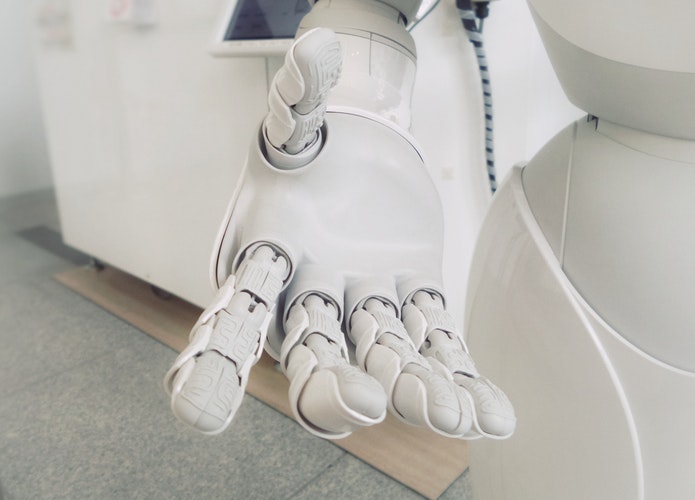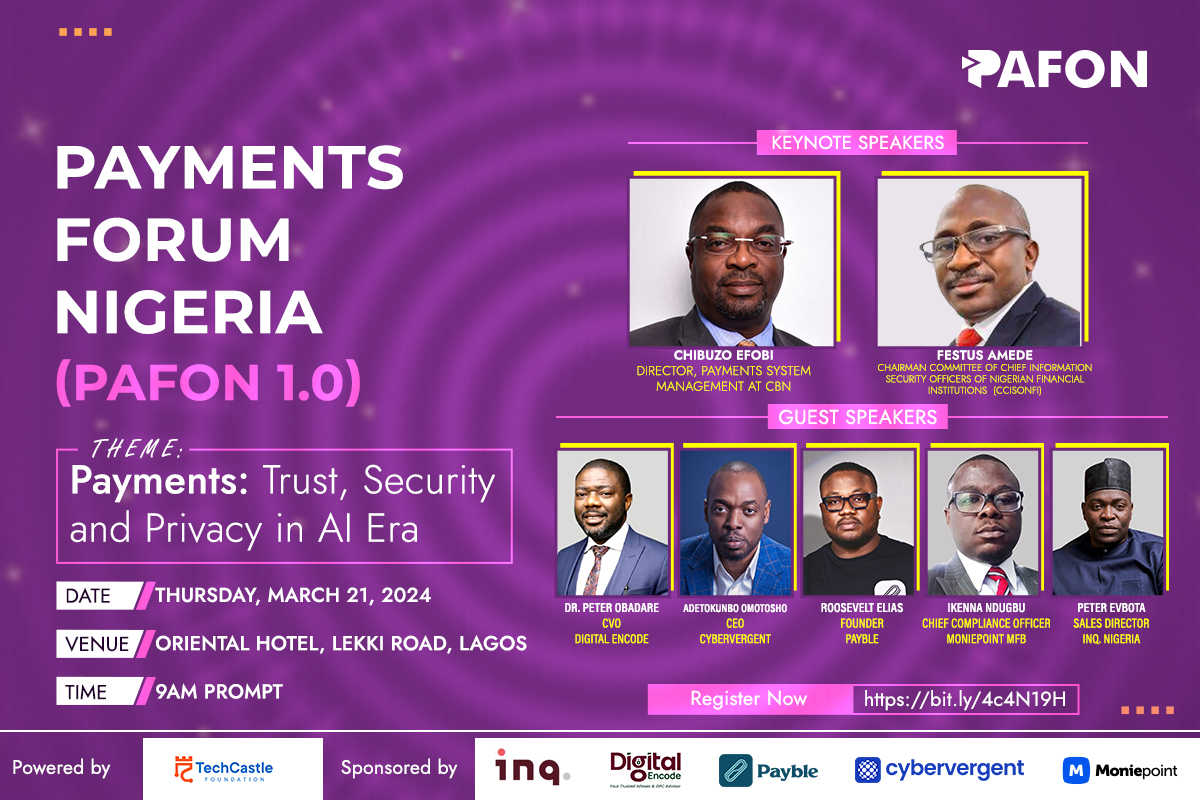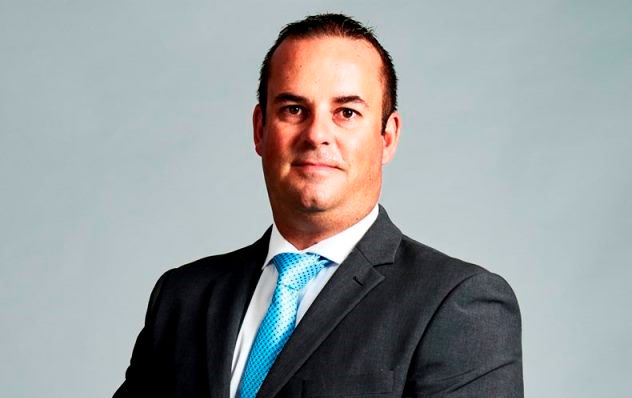GRTech
DDoS attacks via IoT devices threaten the ongoing development of Fourth Industrial Revolution


Distributed Denial of Service (DDoS) attacks that use Internet of Things devices are a significant threat to the Fourth Industrial Revolution, and the potential it brings to revolutionise productivity and people’s lives in general.
This was proven during the late 2016 DDoS attack largely ascribed to the Mirai botnet, which, unlike other botnets that are typically made of up computers, was composed largely of weaponised Internet of Things (IoT) devices such as DVR players, home routers, air quality monitors and personal surveillance cameras.
This is according to Bryan Hamman, territory manager for sub-Saharan Africa at NETSCOUT Arbor, which specialises in advanced DDoS protection solutions. “The internet is an integral part of life and infrastructure in most countries around the world today,” Hamman says. “A successful DDoS attack aims to disrupt or cause the denial of an online service by overwhelming it with traffic from multiple sources. The DDoS attacks of 21 October 2016, for example, showed just how vulnerable sections of the internet and its global operability are to attack by those of ill intent.
“These attacks, which are largely ascribed to the Mirai botnet and have entered recent history due to the involvement of IoT devices, involved multiple DDoS attacks targeting domain name system (DNS) provider Dyn, whose business ensures that information requests via the internet are delivered to the correct address. The knock-on effect was that major internet platforms and services linked to Dyn – including Twitter, GitHub, Reddit, Pinterest, Etsy, Tumblr, Spotify, PayPal and the PlayStation network – were unavailable to millions of users in Europe and North America for some hours. Consumers were unable to carry out activities like online shopping, social media interaction or listen to music during this enforced downtime – examples which showcase exactly what the Fourth Industrial Revolution is all about, namely the interaction of the physical and digital worlds.”
The Fourth Industrial Revolution is generally understood to be the coming together of physical and digital technologies. It builds on the previous industrial revolutions which each, in their own way and their own times, were seen to increase production of processed items during their eras. In the process, each industrial revolution changed the ways that humans operated in particular spheres, arguably bringing in opportunities for improvements in efficiencies in general, and in some cases even poverty alleviation through the creation of jobs and new systems. The First Industrial Revolution began in the 18th century with the invention of the steam engine; the Second used electricity to create mass production; the Third used electronics and information technology to automate production; and the Fourth is leapfrogging on top of the relatively recent Third to close the gap between our use of the physical and digital world.
Hamman explains, “People are aware that the Fourth Industrial Revolution is bringing change at a rate never seen before. The pace and scale of disruption brought about by connected technology is incredible; almost every industry you can think of is being transformed at an unprecedented speed. While it is true at a societal level that this global-scale of change will likely render some jobs obsolete, it will also create other new jobs during the disruption.
“As with most things, the powers inherent in the Fourth Industrial Revolution can be used for the greater good, or alternatively abused – this is human nature. But on the positive side, the possibilities being brought by the closing of the gap between the physical and digital worlds include changes in commerce, education and healthcare – for example, advances in biomedical sciences can lead to healthier lives and longer life spans https://trailhead.salesforce.com/en/modules/impacts-of-the-fourth-industrial-revolution/units/understand-the-impact-of-the-fourth-industrial-revolution-on-society-and-individuals. I prefer to focus on the ways in which the Fourth Industrial Revolution can be used for positive change.”
NETSCOUT Arbor notes in its 13th Annual Worldwide Infrastructure Security Report (WISR), released earlier this year, that the use of compromised IoT devices to launch DDoS attacks has helped cybercriminals increase the complexity of their assaults. The WISR is based on 390 responses from network operators globally, with more than half of the respondents headquartered and operational in North America. The 13th WISR showed that 33 percent of surveyed organisations had suffered a DDoS attack during 2017 (up from the previous year’s 17 percent). The report notes in its conclusion: “…attackers continue to build and weaponize massive IoT botnets of unprecedented size and capability…. This year, we’ve seen increasing sophistication of IoT-based botnet attack capabilities. These modern botnets are capable of delivering attacks that include application-layer, volumetric and complex multi-vector DDoS attacks.”
In a white paper, ‘IoT DDoS attacks show the stakes have changed’, NETSCOUT Arbor recommends a multi-layered approach to DDoS attack detection and mitigation, to counter-act the multi-vector layering inherent in botnets that are similar to the Mirai botnet, which began operating on 1 August 2016.
Additionally, the paper notes the need for IoT makers to insert some basic security requirements into devices; for IoT operators in enterprises to improve and maintain visibility; for IoT users to take more responsibility for their devices; and for security operators to make sure that security and employee policies reflect and cater for the reality of the widespread use of IoT devices in today’s workplace.
“I view DDoS attacks, such as the 21 October 2016 attacks and the largest DDoS attack ever seen – namely the 1.7 Tbps attack on an American-based service provider during the first week of March 2018, which was foiled by NETSCOUT Arbor – as a threat to the positive possibilities that the Fourth Industrial Revolution could bring about. I therefore urge companies to remain aware of the damage that can be wrought by an undefended DDoS attack, and to get their defences in order,” Hamman concludes.
GRTech
Sophos Partners with Tenable to Launch New Sophos Managed Risk Service


. New Fully Managed Solution Provides Visibility, Risk Monitoring, Prioritization, Investigation, and Proactive Notification to Prevent Cyberattacks
April 4, 2024 – Sophos, a global leader of innovative security solutions that defeat cyberattacks, today announced a strategic partnership with Tenable, the Exposure Management company, to provide Sophos Managed Risk, a worldwide vulnerability and attack surface management service.
The new service features a dedicated Sophos team that leverages Tenable’s exposure management technology and collaborates with the security operations experts from Sophos Managed Detection and Response (MDR) to provide attack surface visibility, continuous risk monitoring, vulnerability prioritization, investigation, and proactive notification designed to prevent cyberattacks.
The modern attack surface has expanded beyond traditional on-premises IT boundaries, with organizations operating frequently unknown numbers of external and internet-facing assets that are unpatched or under protected, leaving them vulnerable to cyberattackers.
This is evident in the newest Sophos Active Adversary Report, also released, which identifies three tasks that organizations must prioritize to minimize the risk of brazen intrusions that lead to ransomware or other types of attacks.
These include closing exposed Remote Desktop Protocol (RDP) access, enabling multi-factor authorization and patching vulnerable servers, all of which were top entry points in breaches handled by Sophos Incident Response in 2023.
The Sophos Managed Risk service can assess an organization’s external attack surface, prioritize the riskiest exposures, such as open RDP, and provide tailored remediation guidance to help eliminate blind spots and stay ahead of potentially devastating attacks.
“Sophos and Tenable are two industry security leaders coming together to address urgent, pervasive security challenges that organizations continuously struggle to control. We can now help organizations identify and prioritize the remediation of vulnerabilities in external assets, devices and software that are often overlooked. It is critical that organizations manage these exposure risks, because unattended, they only lead to more costly and time-consuming issues and are often the root causes of significant breaches,” said Rob Harrison, senior vice president for endpoint and security operations product management at Sophos. “We know from Sophos’ worldwide survey data that 32% of ransomware attacks start with an unpatched vulnerability and that these attacks are the most expensive to remediate. The ideal security layers to prevent these issues include an active approach to improving security postures by minimizing the chances of a breach with Sophos Managed Risk, Sophos Endpoint, and 24×7 Sophos MDR coverage.”
“While the latest zero day may dominate the headlines, the biggest threat to organizations, by a large margin, is still known vulnerabilities – or vulnerabilities for which patches are readily available,” said Greg Goetz, vice president of global strategic partners and MSSP, Tenable. “A winning approach includes risk-based prioritization with context-driven analytics to proactively address exposures before they become a problem. Sophos Managed Risk, powered by the Tenable One Exposure Management Platform, delivers outsourced preventive risk management, enabling organizations to anticipate attacks and reduce cyber risk.”
Specific key benefits of Sophos Managed Risk include:
- External Attack Surface Management (EASM): Advanced identification and classification of internet-facing assets, such as web and email servers, web applications, and public-facing API endpoints
- Continuous monitoring and proactive notification of high-risk exposures: Proactive notification when a new critical vulnerability is identified in an organization’s internet-facing assets
- Vulnerability prioritization and identification of new risks: Swift detection of high-risk and zero-day vulnerabilities, followed by real-time notification to ensure critical internet-facing assets are promptly identified, investigated and responded to by order of importance
“One of the biggest challenges organizations face when improving their security posture is prioritizing what to handle first. This type of guidance helps solve that issue and reduces the workload for security teams tasked with tackling vulnerability and exposure management,” said Craig Robinson, research vice president of Security Services, IDC. “Solutions such as Sophos Managed Risk can be a differentiator by enabling overwhelmed teams to take a more holistic approach to continuous monitoring and threat management.”
Sophos Managed Risk is available as an extended service with Sophos MDR, which already protects more than 21,000 organizations globally. The Sophos Managed Risk team is Tenable-certified and works closely with Sophos MDR to share essential information about zero-days, known vulnerabilities and exposure risks to assess and investigate possibly exploited environments.
“Sophos Managed Risk simplifies the difficult and resource consuming task of identifying vulnerabilities, really understanding the extent of risk exposure, and prioritizing necessary remediations,” said Kieron Stone, cybersecurity business development manager at Phoenix Software Ltd. “As a trusted managed service provider (MSP), this is a service we’re proud to stand behind, and nearly all our customers using it have already discovered significant vulnerabilities that they were previously unaware of. For organizations that don’t already have a well-defined vulnerability patching cadence, this is a must-have service for the identification of vulnerabilities and building that schedule; and for organizations that are already managing vulnerabilities, it’s a second set of eyes for added peace of mind that they’re not missing anything.”
Organizations benefit through regular interaction, including scheduled meetings with Sophos experts to review recent discoveries, insights into the current threat landscape, and recommendations for remediation and prioritizing actions. Additionally, organizations can initiate inquiries via the Sophos Central platform, allowing users to directly engage with the Sophos Managed Risk team for tailored support, reports and to review their latest prioritized alerts.
“You can’t fix what you can’t see. Sophos Managed Risk is shining a light on areas of exposure that require remediation in order to keep customers protected. Combining Sophos’ elite MDR experts with Tenable’s industry-leading exposure management technology gives us a full picture view of vulnerabilities with the guidance we need to minimize risk,” said Brooks Roy, president at Communications Consulting, Inc. “The real value add for us as a channel partner is having the ability to easily manage Sophos Managed Risk’s prioritized alerts across our customer base on the Sophos Central dashboard.”
Sophos Managed Risk is available with a term license through Sophos’ global network of channel partners and Managed Service Providers (MSPs). A Sophos MSP Flex version will be available in 2024.
TechNews
inq.Digital Supports Payments Forum Nigeria [PAFON 1.0]


Inq. Digital Nigeria Limited has been announced as a sponsor of Payments Forum Nigeria [PAFON 1.0] maiden edition holding this Thursday in Lagos.
inq. Digital Nigeria Limited, a subsidiary of inq. Group is an emerging leading digital and cloud solutions provider that delivers simpler seamless solutions to complex business challenges.
With offices in Lagos, Abuja, Port Harcourt and Kano, inq. provides reliable and affordable Intelligent Connectivity, SDN/NFV, Cloud and Digital services (including Edge –AI) for Nigerian businesses including those in the payment space.
Participation is FREE, however, pre-registration is required: https://bit.ly/4c4N19H.
Speaking ahead of Payments Forum Nigeria [PAFON 1,0] scheduled to take place at Oriental Hotel, Lekki Road, Lagos on Thursday, March 21, 2024 by 9am under the theme: “Payments: Trust, Security and Privacy in AI Era”, Mr. Chike Onwuegbuchi, the co-founder of TechCastle Foundation, the organisers, said the goal is to enable information exchange and knowledge sharing on key industry insights issues amongst key stakeholders, with the objective of ensuring a collaborative and proactive approach to push for policies that enable growth, tackling/mitigating fraud and limiting occurrences and losses.
Speakers
The following speakers are lined up for the Forum: Chibuzo Efobi, Director, Payments System Management, Central Bank of Nigeria (CBN); Festus Amede, Chairman, Committee of Chief Information Security Officers of Nigerian Financial institutions (CCISONFI; Dr. Adewale Peter Obadare, Chief Visionary Officer (CVO), Digital Encode Limited; Adetokunbo Omotosho, Chief Executive Officer, Cybervergent; Roosevelt Elias, Founder, Payble; Ikenna Ndugbu, chief compliance officer, Moniepoint MFB, and Peter Evbota, Sales Director at inq. Digital Nigeria Limited.
Payments Forum Nigeria is organised by TechCastle Foundation and sponsored by: inq. Digital Nigeria Limited, Cybervergent, Moniepoint, Digital Encode Limited, Payble with support from the Central Bank of Nigeria (CBN).
GRTech
S Mobile Tech Hub Opens Registration to Entrepreneurs in Southeast


• 500 successful candidates to get starter-packs
• Rolls our Free Data, Airtime to Civil Servants, Students, others
S Mobile Tech Hub, an offspring of S Mobile Group has open applications to technology entrepreneurs in the Southeast Nigeria.
S Mobile Tech Hub was recently conceived by Mr. Kingsley Adonu, a visionary entrepreneur and CEO/Founder S Mobile Group, who aims to manifest the Group’s deliberate programmes towards building a dynamic and vibrant startup ecosystem in eastern region of the country.
APPLY by visiting www.smobilegroup.com to register.
Speaking against this backdrop, Mr. Adonu, said that even against tremendous challenges faced by the youth in the Southeast, they must be actively engaged in digital skills development in order to eschew social vices and make positive contributions towards maintaining peace and progress in the region.
“Unfortunately, a lot of our young people are facing numerous barriers to participating in formal and informal sectors today. In December 2015, the United Nations Security Council adopted UNSCR 2250 on Youth, Peace and Security. The resolution was the first to recognise the important role young people can play in preventing conflicts, and sustaining peace.
“It is on this premise and more that S Mobile is thinking out of the box by extending digital skills programmes to empower the youth to be more economically relevant. This will also go a long way in supporting the efforts of the Governors in the Southeast who are not resting on their oars until we have crime-free society with less poverty index.
“S Mobile Tech Hub has been positioned as a platform for entrepreneurs to leverage trends to accelerate their skills and innovation especially in the areas of artificial intelligence, robotics, big data, etc., which have become embedded in our daily lives.
“We are rolling out free data and airtime to civil servants, students, farmers and other entrepreneurs, for connecting with MTN Nigeria services.
Also during the cohort 1 of S Mobile Tech Hub programme 500 successful technology entrepreneurs across the Southeast region will be sponsored with the starter-tools to live their dreams.
“Together, let’s turn technology into your personal pathway to empowerment, growth, and societal well-being. Don’t just dream about a brighter tomorrow; let’s build it together today!”, the company said on Wednesday.
-



 Tech3 days ago
Tech3 days agoAnambra School Emerges Winner In National Girls In ICT Competition With Groundbreaking VR Technology
-



 News4 days ago
News4 days agoNiger State Prisoners Run From Facility After Rainstorm Brings Down Part Of Fencing
-



 Spotlight3 days ago
Spotlight3 days agoNigerian Woman Breaks Guinness World Record With 55-Hour Interview Marathon
-



 Politics3 days ago
Politics3 days agoEnugu State Government Flag Off Palliative Distribution In The State
-



 News2 days ago
News2 days agoEFCC: New Documents Extracted Shows Yahaya Bello Allegedly Paid School Fees To The Tune Of $845,852,84 For His Family Members
-



 Finance5 days ago
Finance5 days agoGodwin Emefiele Disobeyed Direction Of Law With Intent To Harm The Public, He Printed ₦684.5M Using ₦18.9B Says EFCC in fresh charge
-



 News1 day ago
News1 day agoKing Charles Reportedly “Really Unwell” And Funeral Plans Are Currently Being Reviewed
-



 Entertainment1 day ago
Entertainment1 day agoBig Congratulations To BBNaija Star, Miracle Igbokwe Who Graduated With Distinction From Embry-Riddle Aeronautical University In Florida USA







